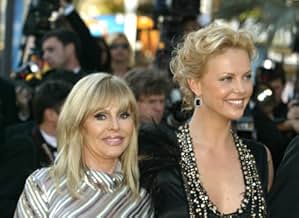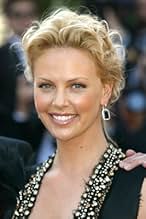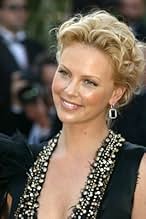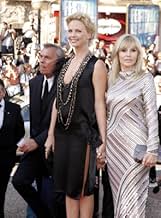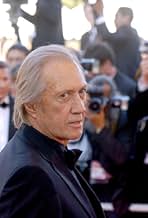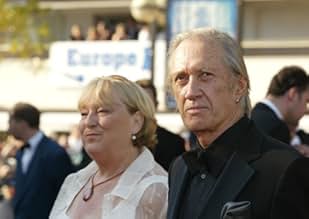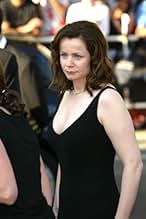Das Leben und der Tod von Peter Sellers
Originaltitel: The Life and Death of Peter Sellers
IMDb-BEWERTUNG
6,9/10
15.533
IHRE BEWERTUNG
Die Feature-Adaption von Roger Lewis' Buch über den Schauspieler, an den man sich am besten als Inspector Clouseau in den Pink Panther-Filmen erinnert.Die Feature-Adaption von Roger Lewis' Buch über den Schauspieler, an den man sich am besten als Inspector Clouseau in den Pink Panther-Filmen erinnert.Die Feature-Adaption von Roger Lewis' Buch über den Schauspieler, an den man sich am besten als Inspector Clouseau in den Pink Panther-Filmen erinnert.
- Regie
- Drehbuch
- Hauptbesetzung
- 9 Primetime Emmys gewonnen
- 31 Gewinne & 35 Nominierungen insgesamt
Edward Tudor-Pole
- Spike Milligan
- (as Edward Tudor Pole)
Empfohlene Bewertungen
The story begins with the Goons and ends just after his role in the movie, Being There, thirty years later. A lot of the film features recreations of famous moments in Seller's acting life, such as appearing on "The Goons" or in "The Pink Panther". There are some particularly hilarious insights into his development of the "Inspector Clouseau" character, including an explanation of why he ended up hating the character so much.
As such, it really only touches the surface of his life story, but it does give you an intense understanding of the character. A character which, in the style of Greek tragedy, had a major flaw. For me, the flaw was Seller's total lack of confidence, perhaps due to his appearance, which he appears constantly to have overcompensated for.
Curiously enough, since Sellers is shown portraying great emotions, I was never actually moved myself, except perhaps for the occasion when he is violent towards Britt Ekland and in a particularly galling moment with his children.
The movie reaches its crescendo with Sellers' performance in "Being There" in which it's suggested the reason why Sellers so wanted to play the man without a personality was because he, himself, had no personality.
A few people at my workplace commented they thought the movie was far too stylized. Although I can see their point, and I agree I was never really touched by the movie, I thought Geoffrey Rush's performance more than made up for this. Rush plays not only Sellers, but several other characters in a Sellers-like "Dr Strangelove" kind of way, and achieves all of it with gusto. I also really enjoyed the performance of Miriam Margoyles as Sellers' mother, Peg, with whom he seems to have enjoyed an intense, almost Oedipal relationship.
I thought Geoffrey Rush's performance was fantastic and makes the movie totally worth watching.
As such, it really only touches the surface of his life story, but it does give you an intense understanding of the character. A character which, in the style of Greek tragedy, had a major flaw. For me, the flaw was Seller's total lack of confidence, perhaps due to his appearance, which he appears constantly to have overcompensated for.
Curiously enough, since Sellers is shown portraying great emotions, I was never actually moved myself, except perhaps for the occasion when he is violent towards Britt Ekland and in a particularly galling moment with his children.
The movie reaches its crescendo with Sellers' performance in "Being There" in which it's suggested the reason why Sellers so wanted to play the man without a personality was because he, himself, had no personality.
A few people at my workplace commented they thought the movie was far too stylized. Although I can see their point, and I agree I was never really touched by the movie, I thought Geoffrey Rush's performance more than made up for this. Rush plays not only Sellers, but several other characters in a Sellers-like "Dr Strangelove" kind of way, and achieves all of it with gusto. I also really enjoyed the performance of Miriam Margoyles as Sellers' mother, Peg, with whom he seems to have enjoyed an intense, almost Oedipal relationship.
I thought Geoffrey Rush's performance was fantastic and makes the movie totally worth watching.
Let there be no doubt that Peter Sellers would be an enormously difficult part to play. He has to be one of the few actors in film history who is more complex than the characters he played. (unless one considers actors such as Paul Walker... let me rephrase that, one of the few TALENTED actors) And it would be hard to imagine the man who is still infamously remembered as Inspector Clouseau from the Pink Panther series being played in as flawless a manor as by Geoffrey Rush here. He wasn't the most obvious choice to play Peter Sellers, but he proved to be the wisest one. The man deserves countless praises, not only for playing Sellers himself to perfection, but also for flawlessly re-creating pretty much every film and radio role Sellers ever played, from Dr. Strangelove to Chance the gardener to Clouseau himself. (beginning in a hilarious sequence on an airplane when Sellers hassles an airline stewardess in Clouseau character) But it doesn't stop there - all throughout his life (or at least so shown here) Sellers struggled with the notion that despite the rampant personalities of his screen personas, Peter the man never really had much of a personality himself. To show this, Sellers reenacts sequences of his real life with himself playing different characters. It is in these delusional sequences that Rush shows his true mastery - he doesn't give us "Geoffrey Rush as Peter Sellers' mother", he gives us "Geoffrey Rush as Peter Sellers as Peter Sellers' mother". Words can't describe the amount of recognition Geoffrey Rush deserves, and a solitary Golden Globe simply doesn't do him justice.
Despite the fact that virtually the whole show centers around Rush and his masterful performance, he is backed up by a strong supporting cast and crew. Director Stephen Hopkins was also an odd choice for the project, given his past credentials ("Lost in Space"? "Predator 2"?)but he proves to have the cheeky sense of humour the film needed to be taken seriously, starting off with a surreal 60's style animation sequence with Sellers showing clips from his own life. And it's nice to see some higher profile actors taking the back seat here, such as Charlize Theron, delightfully ditzy and yet not quite a parody as Sellers' airheaded second wife Britt Eckland. Emily Watson brings class and understated strength to her role as Ann, Sellers' first wife, and, as we are led to believe, the only woman he ever truly loved. (despite the fact he left her and their children to pursue a relationship with Sophia Loren which never happened) Stanley Tucci plays Stanley Kubrick in a brief yet important role during the filming of Dr. Strangelove - his eyes showed what his words could not: how irresponsible and hazardous to he production he perceived Sellers to be. Miriam Margoyles, better known as Professor Sprout in the Harry Potter series is formidable as Peter's domineering, manipulative mother, portrayed as the main reason for Sellers' fractured state of reality. And John Lithgow is an excellent Blake Edwards, blending his eternal optimism and energy with a sense of self pride, which he is forced to swallow, asking Sellers to return for numerous Pink Panther sequels. Lithgow, with his obnoxious laugh, is a constant high point throughout the film.
Yet, after the viewing is finished, the watcher feels strangely empty. Sure it looked classy, and it felt classy to watch, so why shouldn't it be classified as a great movie? Perhaps it's because 'The Life and Death of Peter Sellers' feels more like a series of snapshots, and not like a proper biography. We are presented with WHAT Sellers did in his lifetime, but never really shown WHY. There's an irritating lack of depth, which the viewer fails to notice during the movie, so captivated are we with Rush's wonderful acting. But when we reflect on the film afterwards, we realize that we still don't really know who Peter Sellers is. We know what he did, but not why he did it. This may be an intentional decision on Hopkins' part, because, as we are led to believe, Sellers didn't really understand himself that well. So no one really knew who Peter Sellers was... not even himself. And we should be content with that.
-8/10
Despite the fact that virtually the whole show centers around Rush and his masterful performance, he is backed up by a strong supporting cast and crew. Director Stephen Hopkins was also an odd choice for the project, given his past credentials ("Lost in Space"? "Predator 2"?)but he proves to have the cheeky sense of humour the film needed to be taken seriously, starting off with a surreal 60's style animation sequence with Sellers showing clips from his own life. And it's nice to see some higher profile actors taking the back seat here, such as Charlize Theron, delightfully ditzy and yet not quite a parody as Sellers' airheaded second wife Britt Eckland. Emily Watson brings class and understated strength to her role as Ann, Sellers' first wife, and, as we are led to believe, the only woman he ever truly loved. (despite the fact he left her and their children to pursue a relationship with Sophia Loren which never happened) Stanley Tucci plays Stanley Kubrick in a brief yet important role during the filming of Dr. Strangelove - his eyes showed what his words could not: how irresponsible and hazardous to he production he perceived Sellers to be. Miriam Margoyles, better known as Professor Sprout in the Harry Potter series is formidable as Peter's domineering, manipulative mother, portrayed as the main reason for Sellers' fractured state of reality. And John Lithgow is an excellent Blake Edwards, blending his eternal optimism and energy with a sense of self pride, which he is forced to swallow, asking Sellers to return for numerous Pink Panther sequels. Lithgow, with his obnoxious laugh, is a constant high point throughout the film.
Yet, after the viewing is finished, the watcher feels strangely empty. Sure it looked classy, and it felt classy to watch, so why shouldn't it be classified as a great movie? Perhaps it's because 'The Life and Death of Peter Sellers' feels more like a series of snapshots, and not like a proper biography. We are presented with WHAT Sellers did in his lifetime, but never really shown WHY. There's an irritating lack of depth, which the viewer fails to notice during the movie, so captivated are we with Rush's wonderful acting. But when we reflect on the film afterwards, we realize that we still don't really know who Peter Sellers is. We know what he did, but not why he did it. This may be an intentional decision on Hopkins' part, because, as we are led to believe, Sellers didn't really understand himself that well. So no one really knew who Peter Sellers was... not even himself. And we should be content with that.
-8/10
The Life and Death of Peter Sellers has to be one of the most creative, complex and revealing non-documentary movies ever made about an actual person, living or dead, and the inspired casting of Geoffrey Rush is spot on - he's magnificent in all the various and sundry Sellers guises, especially the ones from Dr. Strangelove and The Pink Panther's bumbling inspector. The rest of the casting is excellent too, particularly Charlize Theron as the second "B.E." in Seller's life, Britt Ekland.
The thing I liked most about this movie was how the script let us see how Sellers created his characters - how he was constantly "in character" or inbetween characters. He admits in the movie to being an empty vessel, with no personality of his own; this is what allowed him to be such an insufferably cruel bastard to all the people who were closest to him: he used his immersive, endlessly obsessive artistic process as a weapon and, ultimately, as a substitute for being human.
It's always brutally hard as an artist to find the balance - you have to be true to your work, naturally, and as an actor especially you're constantly redefining your inner reality, but you can't do it at the expense of the people who love you and whom you profess to love; there has to be emotional and mental discipline otherwise you become psychotically self-indulgent, as this film showed Sellers to be. The most poignant scene in the movie for me was when Sellers, in his typically childish and deranged state, tells his little daughter, "I'm an empty shell, there's nobody inside," words to that effect, and she answers, with a sad wisdom that no child should have to learn to possess, "Yes, daddy."
The thing I liked most about this movie was how the script let us see how Sellers created his characters - how he was constantly "in character" or inbetween characters. He admits in the movie to being an empty vessel, with no personality of his own; this is what allowed him to be such an insufferably cruel bastard to all the people who were closest to him: he used his immersive, endlessly obsessive artistic process as a weapon and, ultimately, as a substitute for being human.
It's always brutally hard as an artist to find the balance - you have to be true to your work, naturally, and as an actor especially you're constantly redefining your inner reality, but you can't do it at the expense of the people who love you and whom you profess to love; there has to be emotional and mental discipline otherwise you become psychotically self-indulgent, as this film showed Sellers to be. The most poignant scene in the movie for me was when Sellers, in his typically childish and deranged state, tells his little daughter, "I'm an empty shell, there's nobody inside," words to that effect, and she answers, with a sad wisdom that no child should have to learn to possess, "Yes, daddy."
It might be impossible to capture every aspect of a man's life in a two-hour film (A & E Biography frequently fails at this in the one-hour format with the bigger stars) while giving everything its proper weight. Peter Sellers' life is of such extraordinary dimensions that "The Life and Death of Peter Sellers" even fails at being a scrapbook. This is not necessarily the film's fault; the movie is mostly well-cast (only John Lithgow as Blake Edwards didn't seem quite right) and beautiful to look at, from the opening credits on.
The movie serves mostly as a sampler of Sellers' oddball behavior. Incidents are selected from his life (or slightly fabricated) to stand for the whole; one slap across Britt Ekland's face is meant to represent a lifetime of spousal abuse, but those unfamiliar with Sellers personal life will assume that he was merely temperamental off-camera. In fact, it doesn't even come close to the truth: Anne Sellers reported that Peter once fought her for 14 hours straight (she took a nap in between) and Britt says Peter pointed a loaded gun at her in Rome, only capitulating after she told him 'if you shoot me, you'll ruin your own career'. His mistreatment of his family is grossly underweighted compared to such trivial items as Sellers not quite getting the Texas accent required for the bomber role in Dr. Strangelove, then faking a broken leg to Kubrick so he wouldn't be able to climb the ladder to the elevated cockpit on the movie set and avoid having to admit his failure with the voice. Other things are not clearly explained; for instance, that the "clairvoyant" Maurice Woodruff was in the employ of the movie studios to get Sellers to do the pictures they wanted him to do, or the fantasy sequence after his seven consecutive heart attacks in LA, which relates to Sellers insisting that he had an out-of-body experience during he time his heart stopped. The asides to the camera by the Kubrick and Bill Sellers characters, and Sellers (in funny voices) indicate the director straining for depth; perhaps a documentary on Sellers' life would have been better.
On the plus side, Geoffrey Rush is nothing short of superb as Sellers. Everything about Sellers seems exactly right, including the voice, which is no small feat, since I don't think Sellers is all that doable. The voice certainly wouldn't be recognized as Sellers if done out of context, say, as a stage impersonation, yet it works, even though I can't really recall what Sellers' actual voice did sound like. (It was this lack of personality that made him such a great instrument for creating characters) Charlize Theron is also a dead ringer for Britt, though she's not given much to do.
This movie is mostly for Peter Sellers enthusiasts, like myself, who can pick out the obscure trivia (like the Texas accent sequence), explain it to other people and feel superior. The movie isn't bad, really; its extremely well-acted and well-crafted, but it fails miserably at explaining the man. Why was he the way he was? How does one reconcile his genius with his brutality and selfishness. Sellers is of such depth and magnitude that a two-hour movie just doesn't cut it. For a true picture of the man, I would recommend the Roger Lewis book on which the movie is "based", Ed Sikov's more sympathetic biography on Sellers, and Michael Sellers' memoir "P.S. I Love You". Sellers once described himself as being an "empty vessel", a body through which one of his great characters came to life. I feel the same way about this movie.
The movie serves mostly as a sampler of Sellers' oddball behavior. Incidents are selected from his life (or slightly fabricated) to stand for the whole; one slap across Britt Ekland's face is meant to represent a lifetime of spousal abuse, but those unfamiliar with Sellers personal life will assume that he was merely temperamental off-camera. In fact, it doesn't even come close to the truth: Anne Sellers reported that Peter once fought her for 14 hours straight (she took a nap in between) and Britt says Peter pointed a loaded gun at her in Rome, only capitulating after she told him 'if you shoot me, you'll ruin your own career'. His mistreatment of his family is grossly underweighted compared to such trivial items as Sellers not quite getting the Texas accent required for the bomber role in Dr. Strangelove, then faking a broken leg to Kubrick so he wouldn't be able to climb the ladder to the elevated cockpit on the movie set and avoid having to admit his failure with the voice. Other things are not clearly explained; for instance, that the "clairvoyant" Maurice Woodruff was in the employ of the movie studios to get Sellers to do the pictures they wanted him to do, or the fantasy sequence after his seven consecutive heart attacks in LA, which relates to Sellers insisting that he had an out-of-body experience during he time his heart stopped. The asides to the camera by the Kubrick and Bill Sellers characters, and Sellers (in funny voices) indicate the director straining for depth; perhaps a documentary on Sellers' life would have been better.
On the plus side, Geoffrey Rush is nothing short of superb as Sellers. Everything about Sellers seems exactly right, including the voice, which is no small feat, since I don't think Sellers is all that doable. The voice certainly wouldn't be recognized as Sellers if done out of context, say, as a stage impersonation, yet it works, even though I can't really recall what Sellers' actual voice did sound like. (It was this lack of personality that made him such a great instrument for creating characters) Charlize Theron is also a dead ringer for Britt, though she's not given much to do.
This movie is mostly for Peter Sellers enthusiasts, like myself, who can pick out the obscure trivia (like the Texas accent sequence), explain it to other people and feel superior. The movie isn't bad, really; its extremely well-acted and well-crafted, but it fails miserably at explaining the man. Why was he the way he was? How does one reconcile his genius with his brutality and selfishness. Sellers is of such depth and magnitude that a two-hour movie just doesn't cut it. For a true picture of the man, I would recommend the Roger Lewis book on which the movie is "based", Ed Sikov's more sympathetic biography on Sellers, and Michael Sellers' memoir "P.S. I Love You". Sellers once described himself as being an "empty vessel", a body through which one of his great characters came to life. I feel the same way about this movie.
Biopics are a devilish thing. Is as if the subject himself boycotted the operation from beyond the grave. The ultimate breach of privacy, isn't it? One feels like a voyeur, compelled and revolted at the same time. Goeffrey Rush's brilliant portrayal makes things even worse, I mean better, no I meant worse. A life of massive ups and downs for public consumption. Peter Sellers with a Cary Grant complex and a talent bigger than himself told in bits and pieces. To the ones who know about Sellers is a rather frustrating experience. Dr.Strangelove yes but not Lolita? The relationship with Blake Edwards deserves a movie of its own. The first massive heart attack was during Billy Wilder's "Kiss Me Stupid" but there is no mention of that. I know that to compress such a life without a structure within a two hour film it's an impossible task so what we're left with is a courageous attempt at tell us the sickly existence of one the greatest that ever was, a superlative performance by Goeffrey Rush, an astonishing Charlize Theron as Britt Eckland and very little else. I suppose that should be enough. Yes, it should, shouldn't it?
Wusstest du schon
- WissenswertesPeter Sellers did not give a pony to his son Michael as shown in the film. He gave it to his younger daughter by Britt Ekland several years later. The change was made in order to compress events for dramatic purposes. According to the screenwriter, the horse disappeared after a couple of weeks, and when his daughter wanted to know where it was, he replied that he had given it to Princess Margaret.
- PatzerA cinema marquee advertises Ghost in the Noonday Sun (1974) despite the fact that this film was shelved until after Sellers' death and never received a theatrical release. Similarly, Der Bunker (1973) didn't have a U.K. theatrical release but is shown playing on a London marquee.
- Zitate
[At Peter's wedding to the Swedish starlet Britt Ekland]
Peg Sellers: You've only known that bleedin' Nazi for 3 weeks.
Peter Sellers: Peg, I couldn't be happier.
Peg Sellers: Why are you making the same mistake all over again?
Peter Sellers: Because, my love, they won't let me marry you.
- Crazy CreditsThe frame freezes and the end credits start. After some informations about the last part of life of Peter Sellers have scrolled up the screen, the credits stop and the camera suddenly pulls back, revealing Geoffrey Rush watching the end titles sitting in front of a monitor on a studio set. He turns toward the camera, waves, gets up, leaves the set and walks to a trailer. The camera tries to follow him inside, but he turns and says "You can't come in here". The door closes, and the camera zooms in on the sign with the name "Peter Sellers". The film again fades to black and we see the rest of the end credits.
- Alternative VersionenThe BBC broadcast a version with some scenes rearranged, some scenes shortened and a few other edits:
- The montage of Peter Sellers' earlier films is cut together with the scene where he moves into a big new house with Anne and the children. Also the song 'I Haven't Told Her, She Hasn't Told Me' sung by Peter is played instead of Frank Sinatra's 'Fly Me to the Moon'.
- The first Maurice Woodruff scene and the car showroom scene are moved ahead to after Peter's father's death scene, swapping places with the scene where he phones Harry Secombe asking if he wants to come over for a beer. The car showroom scene also replaces the Shirley Bassey song 'Big Spender' with incidental music composed for the film.
- The first Maurice Woodruff scene begins with a shot of Peter smoking a cigarette in the waiting room before cutting to a shot of Woodruff's book, which is where this scene begins in the original version.
- The Harry Secombe phone call scene is shortened, cutting out the bit where Peter tells his son to go to his room.
- A shot of Peter as Dr. Strangelove saying "Boom" is added after the Dr. Strangelove filming scenes.
- Peter and Britt Ekland's wedding reception scene is shortened slightly, the shots of the children on the carousel are cut out.
- The scene where Peter drives Britt to the hospital to give birth is shortened, cutting out footage of the car going past a church, pulling out in front of another car and Peter telling Britt to keep breathing.
- The very brief scene of Peter seeing a plastic surgeon followed by shots of him in a makeup chair and taking pills is cut out.
- The scene where Maurice Woodruff tries to get Peter to do another Pink Panther film is shortened, the bit where he channels Peter's mother and tells him to do the film is cut out. Also a different take is used when Maurice gets out the film script, instead of saying "Are you absolutely sure about that?", he says "Are you sure about that?".
- The scene of Peter in his trailer dressed as the old salty sea dog is moved back to in between the scenes of him agreeing to make The Pink Panther Strikes Again and the film's premiere, making it look as if this character is part of that film when actually he appears in Revenge of the Pink Panther. In the original version this scene takes place later on, after a shot of Peter picking up a Revenge of the Pink Panther script. Whereas this version changes this shot to show a Being There script.
- The scene of Peter in character as Blake Edwards is shortened. The line at the end of the scene "What did he do after me? The only thing he never gave up on" is cut out.
- The montage of Peter doing character preparation for Being There and burning his old movie stuff is arranged differently. The overlaid shots of him doing The Goon Show and playing Strangelove, Clouseau are removed, although a shot of him burning a photo of President Merkin Muffley and a shot of the Being There novel in his pocket are added.
- In the first shot of Blake Edwards waiting for Peter at the restaurant, instead of starting with a close up of the script for The Romance of the Pink Panther and cutting just before a waiter pours water into a glass, it starts with the water pouring into the glass, using a different part of this same take.
- At the ending, when after the closing text it zooms out to show Peter watching it on a monitor and getting up to go to his trailer after which the end credits roll, this version inserts after the text another shot of Peter standing in the snow, then the cast list rolls before the zoom out to Peter watching it on a monitor. Also in this version The Kinks' song 'A Well Respected Man' starts playing as Peter gets up to go to his trailer, in the original version incidental music is played here instead and 'A Well Respected Man' doesn't start playing until the credits roll.
- VerbindungenFeatured in At the Movies: Folge #1.9 (2004)
- SoundtracksWhat's New Pussycat
Written by Burt Bacharach and Hal David
Performed by Tom Jones
Courtesy of The Decca Music Group Ltd.
Licensed by kind permission from the Universal Film & TV Licensing Division
Top-Auswahl
Melde dich zum Bewerten an und greife auf die Watchlist für personalisierte Empfehlungen zu.
- How long is The Life and Death of Peter Sellers?Powered by Alexa
Details
- Erscheinungsdatum
- Herkunftsländer
- Offizielle Standorte
- Sprache
- Auch bekannt als
- The Life and Death of Peter Sellers
- Drehorte
- 33 Portland Place, Marylebone, London, England, Vereinigtes Königreich(Peter Sellers' London flat)
- Produktionsfirmen
- Weitere beteiligte Unternehmen bei IMDbPro anzeigen
Box Office
- Weltweiter Bruttoertrag
- 1.789.336 $
- Laufzeit2 Stunden 2 Minuten
- Farbe
- Sound-Mix
- Seitenverhältnis
- 1.85 : 1
Zu dieser Seite beitragen
Bearbeitung vorschlagen oder fehlenden Inhalt hinzufügen

Oberste Lücke
What is the Japanese language plot outline for Das Leben und der Tod von Peter Sellers (2004)?
Antwort

